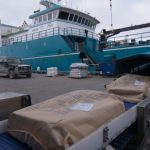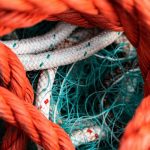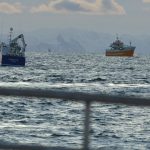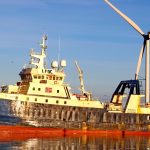The Scottish Fishermen’s Federation is calling for a change of pace and focus on the new fisheries management regulatory framework that was agreed at the EU fisheries council at the end of last year.
The SFF says the new control programme is placing much tighter restrictions on the fishing fleet than was originally envisaged and there needs to be a rethink over the speed of its introduction, with proper consideration given to the serious impact it is having on the economic viability of the Scottish fleet.
The new regime is being introduced at a time of global recession, which is impacting upon the market price of fish and putting severe strain on many segments of the Scottish fleet.
Bertie Armstrong, SFF chief executive, says recognition should also be given to the fact that the North Sea cod stock is recovering and there are encouraging signs on the West coast.
“At the root of the new regulations is effort control, under kW/days, with a starting point of 25% reduction under the new cod recovery plan. This is directly equated with reduction in cod mortality, but at the quayside, this is rather more importantly directly equated to lost revenue, even with buy back,” he said.
“All sectors connected with a cod catch find that this is a bitter pill to swallow, especially those who feel they made a smaller contribution. Nobody wants to see cod failing to recover and the recent upturn must be protected. However, the regulations and their application must be realistic; otherwise they will fail the industry that is trying in good faith to meet the real goal – cod recovery.
“An important output of the Cod Symposium in early 2007 was that movement in the right direction was the critical element of recovery, rather than potentially unrealistic timing. So, when prices conspire with loss of fishing effort to seriously threaten sections of the industry, there has to be a continuous reassessment of whether the plan still makes sense.
Mr Armstrong added: “It will be necessary for the UK fishing administrations to get together with industry and start a dialogue with Brussels on what is possible and bearable regarding speed of movement. Nobody is suggesting a change to the management objective – the recovery of cod – but given the progress to date, we must not stand back while sections of the industry founder, when that could and should be avoided.
“We will continue to meet our responsibilities, but we call now for a change of pace and focus to take account of the difficulties of the national and world situation – as happened in response to the fuel crisis last year. Despite the fact that cod is recovering, the old plan was seen as a failure in not meeting its defined speed of recovery. We must not repeat this process.”








